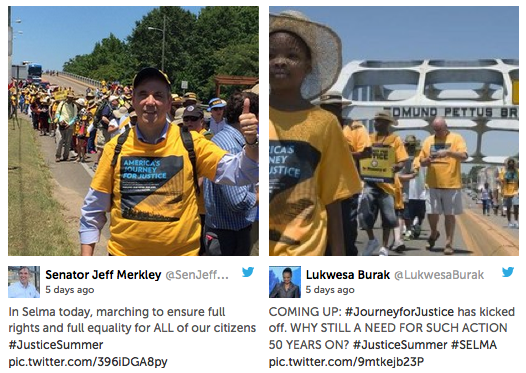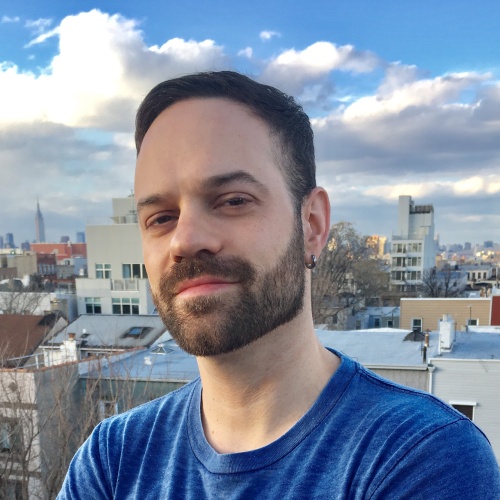Journey for Justice: Marching 860 miles for civil rights

People taking part in an 860-mile march through the South for civil rights are sharing their experiences on social media.
Fifty years after President Lyndon Johnson signed the historic Voting Rights Act, the NAACP has launched an 860-mile march to demand that the promise of the law be fulfilled.
"America's Journey for Justice" began Aug. 1 at the Edmund Pettus Bridge in Selma, Alabama, where police brutally attacked voting rights protesters in 1965. The march, which will traverse five states and end in Washington, D.C. on Sept. 15, aims to mobilize activists and advance a national policy agenda that "protects the right of every American to a fair criminal justice system, uncorrupted and unfettered access to the ballot box, sustainable jobs with a living wage, and equitable public education."
"Our lives, our votes, our jobs, and our schools matter," is the journey's theme.
Rev. Dr. William Barber, president of the North Carolina NAACP, chairs the national group's political action committee and was part of a team that devised a plan to address "the open season on voting rights that began with the desecration of the Voting Rights Act," he told Facing South. In 2013, the U.S. Supreme Court in Shelby v. Holder invalidated Section 5 of the law requiring states and counties with a history of voter discrimination to submit proposed election changes to federal officials for preclearance. In response, states including North Carolina, where 40 of 100 counties had been subject to preclearance, passed restrictive new voting laws.
"The idea is to march 860 miles through states that were previously covered in Section 5," said Barber. In each state — Alabama, Georgia, South Carolina, North Carolina and Virginia — demonstrators will focus on a different justice issue. In North Carolina, the events will highlight voting rights, as the state is embroiled in a pivotal federal voting rights case with national implications. Last week, attorneys issued their closing arguments in NAACP v. McCrory, a lawsuit challenging the restrictive elections law the General Assembly passed shortly after the Shelby decision.
"We have not seen in history a rolling back of progressive voting laws like we are seeing in North Carolina since the end of the Reconstruction," Barber said. The NAACP is calling for passage of the Voting Rights Advancement Act of 2015, an effort to restore the original law's protections that has been introduced in the U.S. House and Senate.
On the third day of the march, the NAACP held a rally at the Alabama State Capitol in Montgomery calling for job creation and training programs, passage of the Raise the Wage and Paycheck Fairness acts, and restrictions on payday loans. To get there, marchers completed the same 54-mile trek from Selma that civil rights protesters had made in 1965.
In Georgia, march participants will emphasize universal access to high quality education regardless of income. In South Carolina, they will focus on criminal justice reform, including national standards for all law enforcement and the passage of the End Racial Profiling Act. After a youth rally in Virginia, the march will end in Washington, D.C. on Sept. 15, and a rally and day of advocacy for all of the march's causes will follow on Sept. 16.
Among the NAACP's Journey for Justice partners are Common Cause, the Sierra Club, and the National Organization for Women. As the marchers make their way along the route, they're posting to Twitter and Instagram using the hashtag #JusticeSummer. For a Storify collection of posts from the march, click here.
A photo posted by Children Over Politics (@kidsovrpolitics) on
Tags
Alex Kotch
Alex is an investigative journalist based in Brooklyn, New York, and a reporter for the money-in-politics website Sludge. He was on staff at the Institute for Southern Studies from 2014 to 2016. Additional stories of Alex's have appeared in the International Business Times, The Nation and Vice.com.
